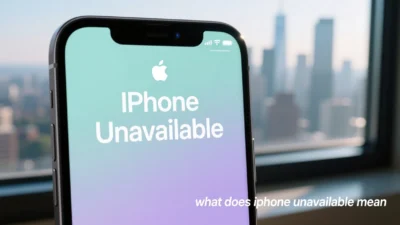You’re watching a Spanish movie, scrolling through TikTok, or chatting with a Spanish-speaking friend, and you keep hearing the word “bien.” Everyone seems to use it — in greetings, compliments, even reactions. You start wondering: What does “bien” actually mean?
Quick Answer:
In Spanish, “bien” means “well” or “good.” It’s a positive and versatile word used to describe how someone feels, how something is done, or to agree in a friendly way — similar to saying “fine” or “okay” in English.
Let’s explore exactly what “bien” means, how to use it naturally in conversations, and the different contexts where it fits perfectly.
🧠 What Does “Bien” Mean in Spanish?
The Spanish word “bien” translates to “well”, “good”, or “fine”, depending on context. It’s one of the most common words you’ll hear in everyday Spanish conversations.
✅ Common Translations:
- “Well” — when describing how something is done. Hablas bien español. → “You speak Spanish well.”
- “Good / Fine” — when talking about how you feel. Estoy bien. → “I’m fine.”
- “Okay / All right” — as a short, positive response. Bien, gracias. → “Good, thanks.”
In short:
👉 Bien = Well / Good / Fine — a positive, versatile word used in many daily Spanish phrases.
📱 Where Is “Bien” Commonly Used?
You’ll see and hear “bien” everywhere — in daily conversations, social media, music, and even memes. Here’s where it appears most:
- 💬 Casual Texting or Chatting – responding quickly or expressing how you feel. ¿Cómo estás? → Bien, tú?
- 🎵 Music & TV Shows – often in lyrics meaning “I’m fine” or “it’s okay.” Todo está bien → “Everything is fine.”
- 💖 Social Media Captions – showing positivity or balance. Viviendo bien. → “Living well.”
- 🗣️ Everyday Speech – in greetings, replies, or encouragement. Muy bien hecho. → “Very well done.”
Tone:
- ✅ Friendly and positive
- 🌎 Used universally in all Spanish-speaking countries
- 🚫 Not formal, but acceptable in polite contexts
💬 Examples of “Bien” in Conversation
Let’s check out some realistic examples to see how “bien” works in different situations 👇
A: ¿Cómo estás?
B: Bien, gracias. ¿Y tú?
(I’m fine, thanks. And you?)
A: ¡Hiciste tu tarea!
B: Sí, la hice.
A: ¡Muy bien!
(You did your homework! – Very good!)
A: ¿Te gusta el café?
B: Bien, pero prefiero té.
(It’s okay, but I prefer tea.)
A: ¿Todo bien en el trabajo?
B: Sí, todo bien.
(Everything’s good at work.)
A: ¿Listo para el examen?
B: Estoy bien preparado.
(I’m well prepared.)
A: Gracias por tu ayuda.
B: Está bien, no hay problema.
(It’s okay, no problem.)
🕓 When to Use and When Not to Use “Bien”
“Bien” is super flexible, but knowing when it fits naturally helps you sound fluent and confident.
✅ When to Use “Bien”
- To say you’re fine or okay (Estoy bien).
- To compliment someone or something (Muy bien hecho).
- To show agreement or acceptance (Está bien).
- To describe how something is done (Hablas bien español).
❌ When Not to Use “Bien”
- Don’t use “bien” when describing objects or people directly — use bueno/buena instead. ❌ Un bien libro → ✅ Un buen libro (“A good book”)
- Avoid overusing it in formal writing — use synonyms like correctamente or adecuadamente instead.
🧾 Comparison Table
| Context | Example Phrase | Why It Works |
|---|---|---|
| Greeting | “Estoy bien, gracias.” | Standard friendly reply. |
| Compliment | “Muy bien hecho.” | Encourages or praises effort. |
| Agreement | “Está bien.” | Shows acceptance or approval. |
| Description | “Hablas bien inglés.” | Explains how well something is done. |
| Wrong Use | “Un bien coche.” (❌) | Should use buen coche instead. |
🔄 Similar Spanish Words or Alternatives
| Word | Meaning | When to Use |
|---|---|---|
| Bueno/a | Good / Nice | Describing nouns (things or people). |
| Correcto/a | Correct / Right | When confirming accuracy or truth. |
| Genial | Great / Awesome | To sound enthusiastic or casual. |
| Vale | Okay / Alright | Common in Spain to show agreement. |
| Perfecto | Perfect | To emphasize approval or satisfaction. |
These words often appear in similar contexts, but “bien” stays the most neutral and widely used.
❓ 5 FAQs About “Bien”
1. Does “bien” mean “good” or “well”?
Both! It depends on the sentence. “Bien” describes how something is done (“well”) or how someone feels (“good/fine”).
2. What’s the difference between “bien” and “bueno”?
Use “bien” for actions or feelings, and “bueno” for describing people or things.
Hablas bien. (You speak well.)
Eres buena persona. (You’re a good person.)
3. Is “bien” formal or informal?
It’s neutral — great for both casual and polite situations.
4. How do you say “I’m doing well” in Spanish?
You say: “Estoy bien.”
5. Can “bien” ever mean “yes” or “okay”?
Yes! In some cases, “bien” can show agreement or acceptance, similar to saying “Okay” or “Alright.”
¿Quieres salir mañana? → Bien.
🏁 Conclusion
Now you know exactly what “bien” means in Spanish! It’s one of those simple yet powerful words that can express how you feel, describe how something’s done, or show agreement — all with just one syllable.
In short:
👉 Bien = Well / Good / Fine — a positive, flexible word used daily in Spanish conversation.
So next time someone says ¿Todo bien?, you can confidently smile and reply:
“Sí, todo bien.” 😄




